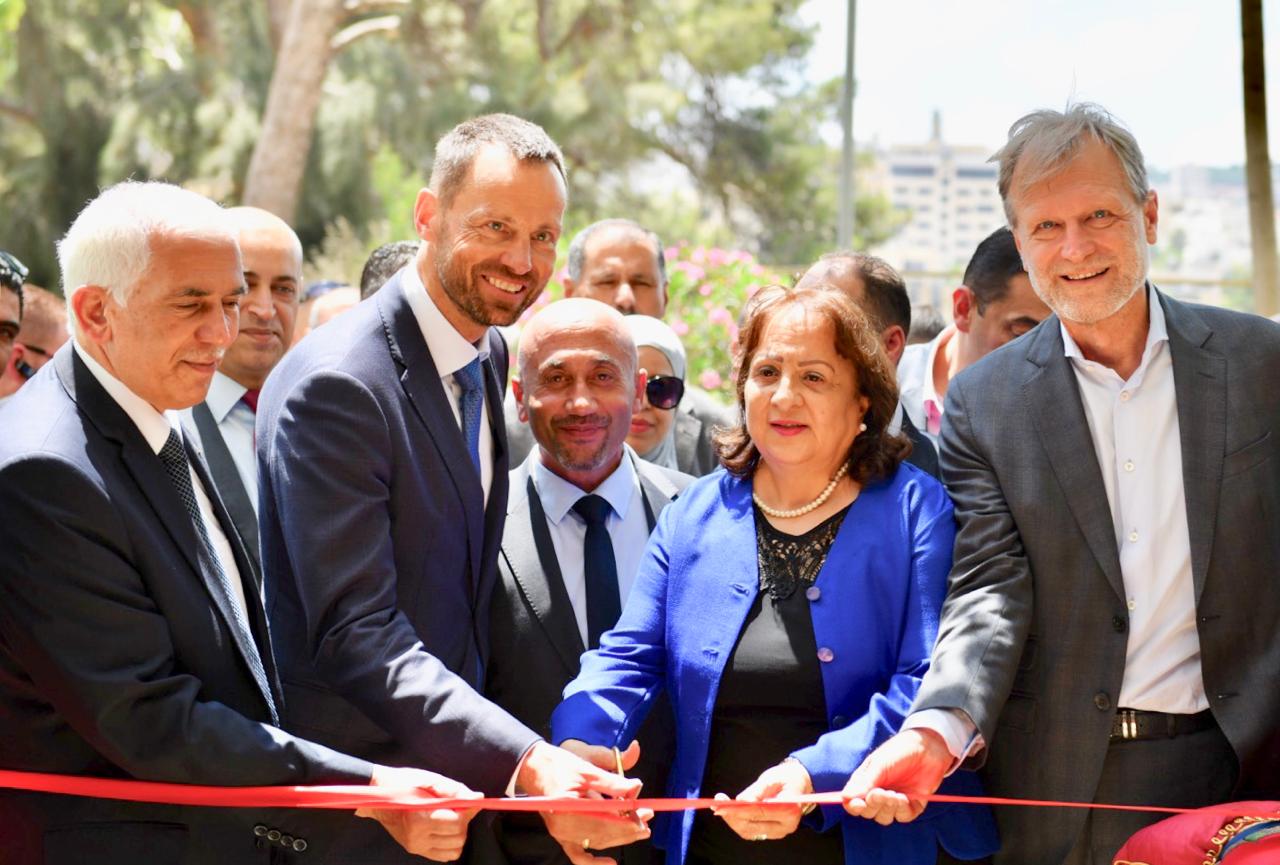 Opening of the renovated acute male ward facility in Bethlehem Psychiatric Hospital. Credit:WHO13 June 2019, Bethlehem – The Palestinian Minister of Health Dr Mai Alkaila and representatives from the European Union (EU) and from the World Health Organization (WHO) marked the ending of WHO’s project “Building Palestinian Resilience: Improving Psycho-Social and Mental Health responses to emergency situations” in the occupied Palestinian territory.
Opening of the renovated acute male ward facility in Bethlehem Psychiatric Hospital. Credit:WHO13 June 2019, Bethlehem – The Palestinian Minister of Health Dr Mai Alkaila and representatives from the European Union (EU) and from the World Health Organization (WHO) marked the ending of WHO’s project “Building Palestinian Resilience: Improving Psycho-Social and Mental Health responses to emergency situations” in the occupied Palestinian territory.
The project, funded by the EU since 2016, supported the Ministry of Health in its efforts to reform mental health services by scaling up community mental health services, integrating mental health into primary and secondary care, and strengthening coordination and mental health emergency preparedness and response capacities.
“Mental health is an integral part of health; in fact, there is no health without mental health. The political violence in Palestine creates an important psychological morbidity and, thus, it is a priority for the ministry of health to respond to this by expanding our mental health services and build professional capacities and skills. Palestinians are a very young population, and young people growing in a violent context are at a special risk to be affected by mental health problems; our future priority is to develop accessible, specialized mental health services for children and adolescents all over Palestine. We appreciate our partnership with the EU and the WHO and we are looking forward for further future collaboration,” stated Dr Mai Alkaila, Minister of Health.
The project successfully facilitated the integration of mental health services into primary health care, covering Ministry of Health and UNRWA clinics in Gaza and the West Bank through the Mental Health Gap Action Programme (mhGAP) - a global WHO approach for scaling up services for mental, neurological, and substance use disorders. Almost 1,600 people were trained on the full range of mental health and psychosocial support (MHPSS) services, including on school mental health counselling, common mental health disorders, rehabilitation, and development of training programmes for general hospital staff.
“Mental health and psychosocial problems, linked to chronic occupation and closure, are a significant public health challenge across the occupied Palestinian territory. Thanks to the continued partnership with the EU, through this project we were able to support the Ministry of Health and UNRWA to enhance the capacity of mental health services, to renovate selected facilities, and to strengthen community-based mental health interventions,” said Dr Gerald Rockenschaub, head of WHO’s office for the occupied Palestinian territory. “We will continue to work with the Ministry and health partners to ensure access to quality mental health services and psychosocial interventions as essential part of our collective efforts to progress towards Universal Health Coverage.”
We are proud of supporting this significant project aimed at providing mental health services and psycho social support in Palestine. For many years now, the Palestinian population has been living under difficult circumstances leading to all sorts of physical and mental complications and problems. It is our joint responsibility, together with the Palestinian Authority and the World Health Organisation, to address the health needs of every Palestinian. This is our approach to make sure we leave no one behind. And this is our vision for a better future for Palestinians and the coming generations," said the Deputy EU Representative, Tomas Niklasson.
Major achievements of the project include the development of a mental health emergency response plan for Gaza, training of emergency mental health teams and procurement of essential psychotropic drugs and supporting infrastructure renovation efforts and rehabilitation at the Bethlehem Psychiatric Hospital. Moreover, the project initiated the establishment of mental health liaison units at four general hospitals in the West Bank, two in Gaza and one in East Jerusalem. Mental health liaison units are specialist services providing mental health care in general hospitals and consist of skilled teams who assess and manage mental health problems of patients treated in general hospitals. However, there is still the need to further work on the development of mental health services, like consolidating efforts to ensure full integration of mental health into service provision at all levels, development of psychosocial rehabilitation and school mental health programmes.
For further information, please contact:
Rajiah Abu Sway
Tel: 00972547179037
email:








